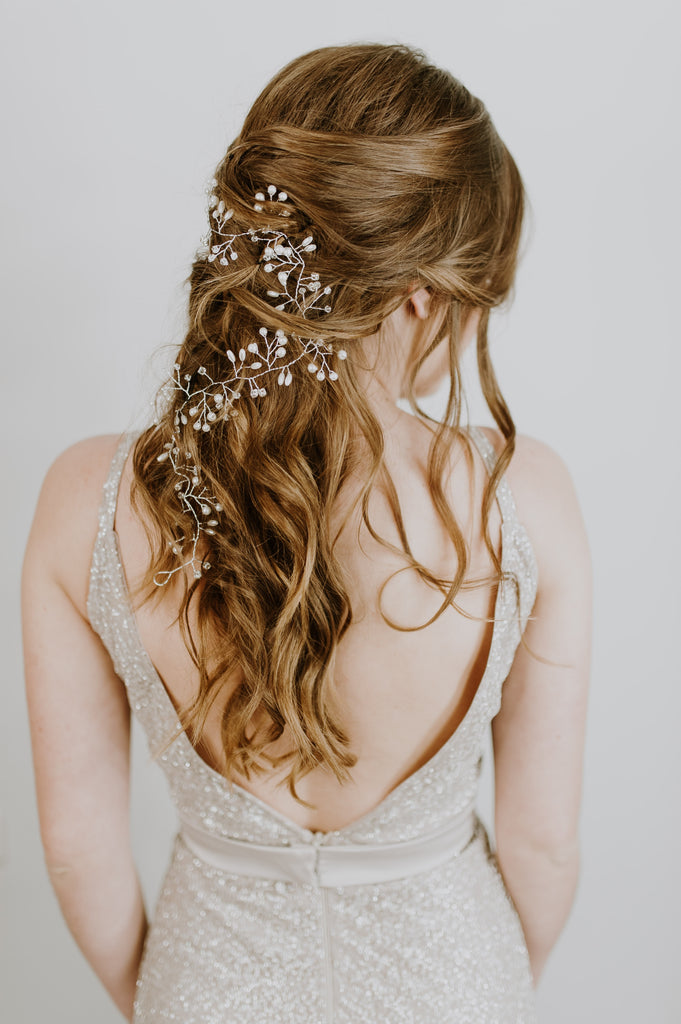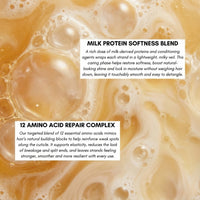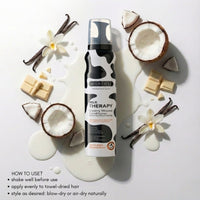The Role of Nutrition in Hair Health
Posted by MORFOSE COSMETICS

Nourishing Your Locks: The Impact of Nutrition on Hair Health
Your hair is a reflection of your overall health, and just like the rest of your body, it relies on essential nutrients to thrive. A well-balanced diet plays a significant role in maintaining the health and vibrancy of your hair. In this guide, we'll delve into the crucial connection between nutrition and your hair's well-being, exploring how your diet affects the strength, shine, and growth of your precious locks.
From Plate to Locks: How Your Diet Affects Your Hair
Your hair's growth and appearance are influenced by a variety of vitamins, minerals, and macronutrients. Let's break down the nutrients that are most crucial for luscious, healthy hair:
1. Protein: Your hair is primarily made up of a protein called keratin. A diet rich in high-quality protein sources, such as lean meats, fish, eggs, and legumes, provides the building blocks for strong and resilient hair.
2. Vitamins: Several vitamins are essential for hair health:
- Vitamin A: Supports the production of sebum, your scalp's natural oil.
- Vitamin C: A powerful antioxidant that aids in collagen production, which strengthens hair.
- Vitamin E: Improves blood circulation in the scalp and enhances hair growth.
- B Vitamins (Biotin, B5, B6, B12):Play a vital role in preventing hair loss and promoting overall hair health.
3. Minerls: Key minerals like iron, zinc, and selenium are necessary for maintaining hair growth and preventing hair loss. Iron deficiency, for instance, can lead to hair thinning and shedding.
4. Omega-3 Fatty Acids: These healthy fats, found in fish, walnuts, and flaxseeds, promote hair strength and shine by nourishing the hair follicles.
5. Water: Staying well-hydrated is essential. Water keeps your hair hydrated, preventing dryness and brittleness.
Nutrients for Luscious Locks: Eating Your Way to Healthy Hair
Now that you understand the role of nutrition in hair health, here are some dietary tips to ensure your locks receive the nourishment they need:
- Protein-Rich Foods: Incorporate lean proteins like poultry, fish, beans, and tofu into your diet to promote hair strength and growth.
- Fruits and Vegetables: Consume a variety of colorful fruits and vegetables to benefit from a wide range of vitamins and antioxidants that support hair health.
- Healthy Fats: Include sources of healthy fats, such as avocados, nuts, and olive oil, to enhance the shine and texture of your hair.
- Iron and Zinc: Lean meats, poultry, beans, and nuts are great sources of these minerals that help prevent hair loss.
- Biotin-Rich Foods: Incorporate biotin sources like eggs, nuts, and sweet potatoes into your diet to encourage healthy hair growth.
- Stay Hydrated: Make sure to drink plenty of water throughout the day to maintain proper scalp and hair hydration.
- Limit Sugar and Processed Foods: High sugar and processed food consumption can lead to inflammation, which can affect hair health. Opt for whole, nutrient-dense foods instead.
In conclusion, a well-balanced diet filled with hair-nourishing nutrients is the secret to luscious, healthy locks. By understanding how your diet affects your hair and making smart nutritional choices, you can help your hair reach its full potential. Remember that healthy hair is a reflection of overall well-being, so nourish your body, and your hair will thank you with strength, shine, and vitality.

The Importance of a Nutrient-Rich Diet for Healthy Hair
Now that we've explored the essential nutrients that contribute to luscious, healthy hair let's delve even deeper into the role of each element and how they directly impact your locks.
1. Protein: The Building Block of Hair
Protein is crucial for healthy hair because your hair itself is primarily made up of a protein called keratin. When you consume protein-rich foods, your body breaks them down into amino acids. These amino acids are used to build and repair various tissues in the body, including your hair. Without an adequate supply of protein, your hair may become weak, brittle, and prone to damage.
Hair-friendly foods rich in protein: Lean meats like chicken and turkey, fatty fish such as salmon and mackerel, eggs, legumes like lentils and beans, and dairy products.
2. The A-Team: Vitamin A
Vitamin A plays a pivotal role in maintaining a healthy scalp, and a well-nourished scalp promotes strong and vibrant hair. It assists in the production of sebum, the natural oil that keeps your scalp moisturized and prevents your hair from drying out and breaking.
Hair-friendly foods rich in vitamin A: Sweet potatoes, carrots, spinach, and kale.
3. Vitamin C: The Antioxidant Ally
Vitamin C is a powerful antioxidant that not only boosts your immune system but also aids in collagen production. Collagen is a protein that provides structure to your hair. A robust collagen network means stronger, more resilient hair.
Hair-friendly foods rich in vitamin C: Citrus fruits like oranges and grapefruits, strawberries, bell peppers, and broccoli.
4. Vitamin E: The Circulation Enhancer
This vitamin improves blood circulation, including in the scalp. Better blood flow ensures that the hair follicles receive more oxygen and nutrients, which are essential for hair growth.
Hair-friendly foods rich in vitamin E: Nuts, seeds, spinach, and avocado.
5. B Vitamins: The Hair Health Team
Biotin, B5 (pantothenic acid), B6 (pyridoxine), and B12 (cobalamin) are all part of the B-vitamin family and are essential for hair health. They play a vital role in preventing hair loss and promoting overall hair well-being. Biotin, in particular, is well-known for its hair-strengthening properties.
Hair-friendly foods rich in B vitamins:
- Biotin: Eggs, nuts, and sweet potatoes.
- B5: Avocado, sunflower seeds, and mushrooms.
- B6: Chickpeas, salmon, and potatoes.
- B12: Meat, fish, dairy products, and fortified cereals.
Iron is crucial for maintaining hair growth and preventing hair loss. An iron deficiency can lead to hair thinning and shedding. Zinc plays a role in hair tissue growth and repair, as well as keeping the oil glands around the hair follicles working properly. Selenium is essential for hair growth and preventing dandruff.
Hair-friendly foods rich in these minerals:
- Iron: Lean meats, poultry, beans, and nuts.
- Zinc: Oysters, beef, and spinach.
- Selenium: Brazil nuts, fish, and brown rice.
Omega-3 fatty acids found in fish, flaxseeds, and walnuts promote hair strength and shine by nourishing the hair follicles. These healthy fats are also essential for a well-hydrated scalp.
Hair-friendly foods rich in omega-3 fatty acids: Fatty fish like salmon, flaxseeds, and walnuts.
8. Water: Hydrating Your Hair
Staying well-hydrated is crucial for maintaining proper scalp and hair hydration. Dehydration can lead to dry and brittle hair. Drinking enough water ensures that your hair remains strong, flexible, and less prone to damage.
In conclusion, a well-balanced diet filled with these hair-nourishing nutrients is the secret to luscious, healthy locks. By understanding how your diet affects your hair and making smart nutritional choices, you can help your hair reach its full potential. Remember that healthy hair is a reflection of overall well-being, so nourish your body, and your hair will thank you with strength, shine, and vitality. To keep your hair at its best, remember that true beauty comes from within, right from your plate to your lovely locks.



